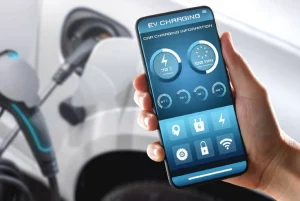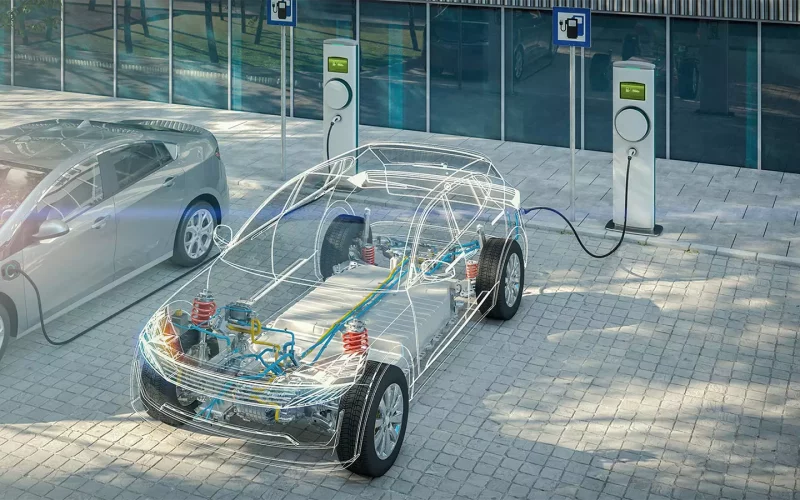Introduction
What is electric vehicle battery life? In the era of sustainable transportation, understanding how to maximize the lifespan of your electric vehicle (EV) battery is crucial. By adopting the right practices, you not only enhance the efficiency and longevity of your EV but also contribute to reducing carbon emissions and minimizing electronic waste. In this comprehensive guide, we delve into expert insights on extending electric vehicle battery life for sustainable transportation.
Understanding Electric Vehicle Batteries
Electric vehicles rely on different types of batteries, including lithium-ion, nickel-metal hydride, and solid-state batteries. Each type has its unique characteristics and performance factors. Factors affecting electric vehicle battery life include charging habits, temperature variations, driving patterns, and maintenance routines.

Tips for Extending Electric Vehicle Battery Life
- Proper Charging Practices: Charge your EV regularly but avoid overcharging or letting the battery drain completely. Opt for slow charging whenever possible and avoid frequent use of fast chargers.
- Maintenance Tips: Regularly inspect and maintain your EV’s battery system. Keep it clean, cool, and free from debris. Check for any signs of wear or damage and address them promptly.
- Temperature Management: Extreme temperatures can degrade battery performance. Park your EV in shaded areas during hot weather and avoid leaving it exposed to freezing temperatures for extended periods.
Innovative Technologies to Increase Electric Vehicle Battery Life
Advancements in battery technology continue to improve the efficiency and longevity of electric vehicle batteries. Regenerative braking systems help extend battery life by converting kinetic energy into electrical energy during deceleration. Vehicle-to-grid (V2G) technology enables EV batteries to store and discharge energy, contributing to grid stability and reducing strain on power plants.

Environmental Impact of Prolonging Battery Life
Prolonging the life of electric vehicle batteries offers significant environmental benefits. By reducing the need for frequent battery replacements, we can minimize electronic waste and lower our carbon footprint. Extending battery life promotes a circular economy by maximizing the use of existing resources and reducing the demand for new materials.
Cost Savings Through Battery Life Extension
While initial costs may be higher, extending the life of electric vehicle batteries can lead to long-term economic benefits. Compared to the expense of replacing batteries, maintenance and optimization strategies are more cost-effective in the long run. By prioritizing battery longevity, EV owners can save money and contribute to sustainable transportation practices.
Safety Considerations to Increase Electric Vehicle Battery Life
Safety is paramount when it comes to extending electric vehicle battery life. Mitigate risks associated with battery degradation by following manufacturer guidelines and avoiding aftermarket modifications. Ensure safe charging practices by using certified chargers and monitoring charging sessions for any anomalies.

Extend Electric Vehicle Battery Life: Expert Insights for Sustainable Transportation
Integrating renewable energy sources into the charging infrastructure further enhances the sustainability of electric vehicles. Collaborative efforts among policymakers, manufacturers, and consumers are essential for promoting sustainable transportation practices and maximizing the benefits of electric vehicle technology.
FAQs
- How often should I charge my electric vehicle?
- Regular charging is recommended, but avoid overcharging or letting the battery drain completely.
- Can extreme temperatures affect battery life?
- Yes, extreme temperatures can degrade battery performance. Protect your EV from excessive heat or cold to maintain optimal battery health.
- Is fast charging harmful to electric vehicle batteries?
- While fast charging is convenient, frequent use may accelerate battery degradation over time. Opt for slower charging whenever possible to preserve battery longevity.
- What is the average lifespan of an electric vehicle battery?
- The lifespan of an EV battery varies depending on factors such as usage patterns, environmental conditions, and maintenance practices. On average, modern EV batteries can last 8 to 15 years.
- Can I replace individual cells in an electric vehicle battery?
- In some cases, individual battery cells can be replaced, but it’s recommended to consult with a certified technician or manufacturer for proper diagnosis and repair.
- How can I dispose of old electric vehicle batteries responsibly?
- Electric vehicle batteries contain hazardous materials and should be recycled or disposed of properly through authorized recycling centers or manufacturer programs.
Conclusion
In conclusion, extending electric vehicle battery life is paramount for sustainable transportation. By implementing the expert tips outlined in this guide, you can optimize the performance, longevity, and environmental impact of your electric vehicle. Together, we can pave the way for a greener future and make sustainable transportation accessible to all.












